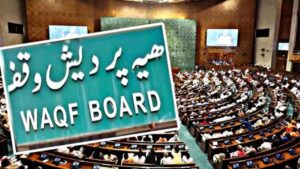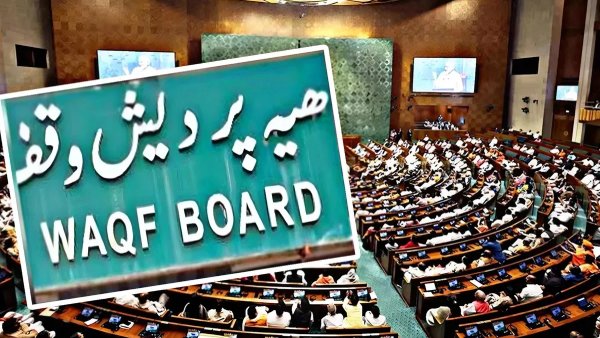Insha Warsi
\The recent discourse surrounding the Waqf Amendment Bill has unfortunately been clouded by religious narratives, diverting attention from the core objective of the proposed reforms- ensuring transparency and accountability in Waqf property management. It is imperative to recognize that the concept of Waqf in Islam fundamentally revolves around charity and public welfare rather than institutional power. The amendments, therefore, must not be perceived as an attack on religion but rather as a necessary measure to combat corruption and mismanagement within Waqf Boards. This calls for a shift in perspective- treating the bill as a social reform instead of a religious dispute
It is crucial to note that the concept of Waqf finds no direct mention in the Quran. What the Quran does emphasize, instead, is the act of charity and giving away one’s most cherished possessions in the path of Allah. Verses such as, “You will never achieve righteousness until you donate some of what you cherish.” (Surah Ali Imran: 92) clearly illustrate that Islam promotes charitable acts without specifying any formal structure like Waqf. Therefore, linking the proposed amendments solely to religious infringement is misguided and misleading. The primary intent of the Waqf Act of 1995 was to safeguard properties dedicated for religious, charitable, and pious purposes However, over the years, the Waqf Boards have faced severe criticism for their unregulated power and lack of transparency. The existing law enables Waqf Boards to declare any land as Waqf property without proper verification, leading to countless disputes and alleged misuse of power. Moreover, some boards have actively restricted individuals from seeking judicial relief, undermining the rule of law. To address these challenges, the government has proposed amendments focused on increasi accountability. These amendments include mandatory verification of properties before being declared as Waqf, judicial scrutiny over disputed properties, inclusion of women and diverse representatives in the Waqf Boards, and curtailing the Boards’ unchecked powers. One significant proposal that has sparked controversy is the inclusion of non-Muslims in Waqf Boards. However, Hanafi Jurisprudence, which most Indian Muslims adhere to, explicitly states that a Mutawalli (Waqf administrator) does not necessarily have to be a Muslim, but rather a person of integrity and competence. This is further substantiated by Darul Uloom Deoband’s Fatwa No. 34944, which permits the appointment of capable non-Muslims as guardians of Waqf properties. This shows that the opposition against inclusion of non-Muslims is not only unfounded but also contrary to established Islamic jurisprudence.
The Waqf Amendment Bill must be viewed in the light of social reform rather than a religious infringement. It is not about challenging Islamic values but about rectifying systemic flaws within the Waqf Boards. By ensuring judicial scrutiny, transparent property verification, and inclusive governance, the bill aims to protect the interests of the community and prevent corruption. Misconstruing these amendments as an attack on religion only diverts attention from the genuine intent of the bill fostering accountability and better management of Waqf assets. It is high time to shift the narrative from religious sensitivity to social accountability, ensuring that Waqf properties serve their true purpose- the welfare of society.
Francophone and Journalism Studies.
Jamia Millia Islamia

















+ There are no comments
Add yours